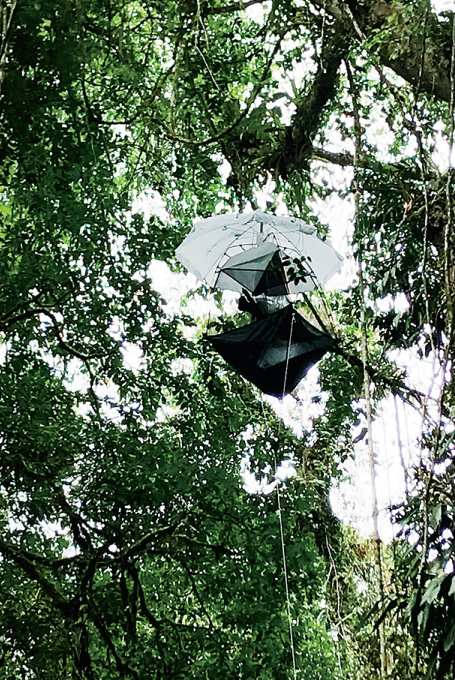

Over the years, Nakamura has looked into the forest microclimate, species biodiversity and interactions, and biogeochemical processes in Yunnan.
"I'm happy to conduct field investigations here, and explore the forest canopy with the aid of new technologies, especially the canopy crane," he says, adding that the botanical garden has offered him the infrastructure for his experiments.
The crane is used in forested areas to gain access to the canopy stratum, and there are fewer than 20 of them worldwide, while China has half of the total number, Nakamura says.
"The crane is crucial for canopy studies and allows us to conduct research in a safer and easier manner. You can carry a lot of equipment up there.
"But their numbers are limited, and only certain areas can be covered, so climbing trees is necessary in some cases," he says.
Since he was 7, he has been thinking about the environment.
"I lived in a peri-urban area (where suburbs meet the countryside), where I collected insects and caught fish in the paddy fields in my childhood," he says.
"Then, I started to see lots of housing development, which took up the crop fields where I used to play. That was sad."
Back then, Nakamura didn't find many universities in Japan that offered environmental studies as a degree. After consulting with his Australian friends in Japan, he went to Australia to pursue environmental sciences in 1997.
Years of study have turned Nakamura's attention to insects, especially on forest canopies. Insects are indispensable and play an important role in predicting climate change, Nakamura explains.
"Without them, we can't survive," he says, adding that they are "ecosystem service providers" and contribute to pollination, nutrient-cycling and pest control.
"Even termites help clean the fallen leaves and trees," he says, adding that people may think of these insects as nuisance, but they are actually providing essential services for our survival and well-being.
Nakamura has been studying the impact of artificial lights on insects and plants.